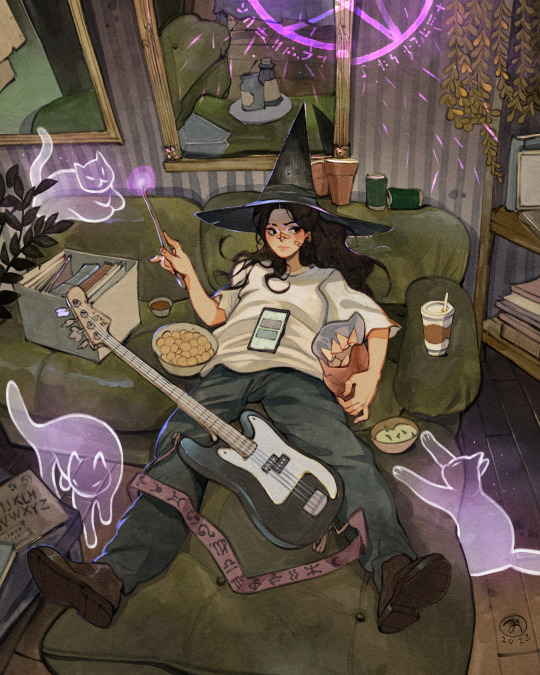Text
We didn’t really *intend* for Eureka to be the ideal monster girl game it just turned out to that way
122 notes
·
View notes
Text
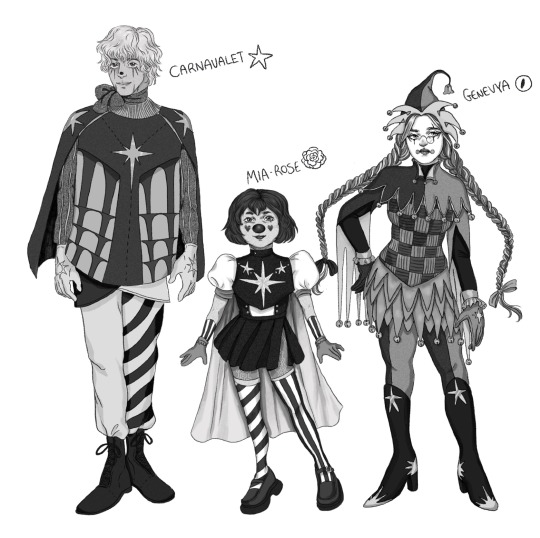
little clown family they are everything to me. redesigning their costumes was so fun!!
individual pics for better details under the cut
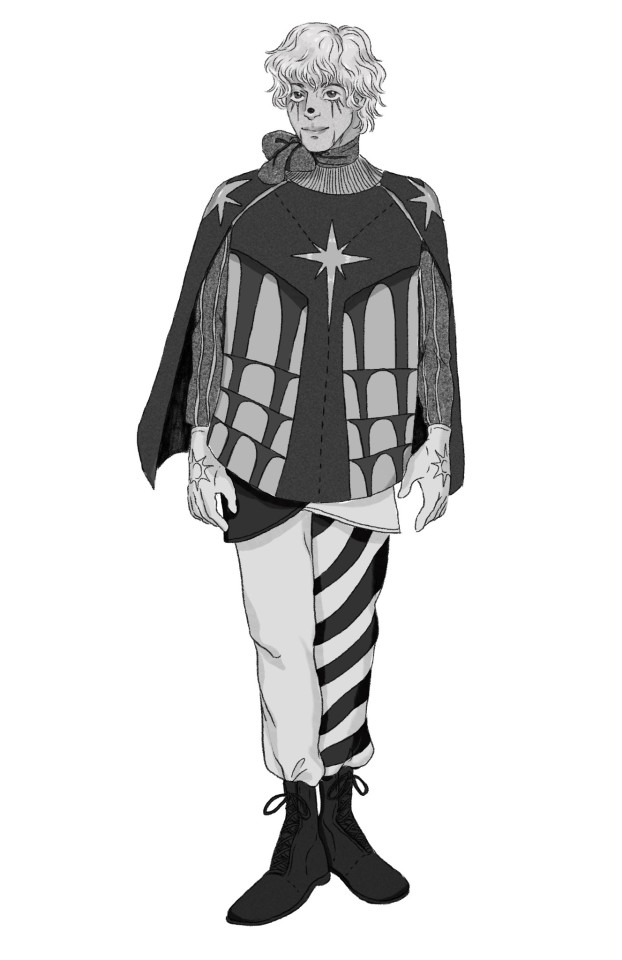
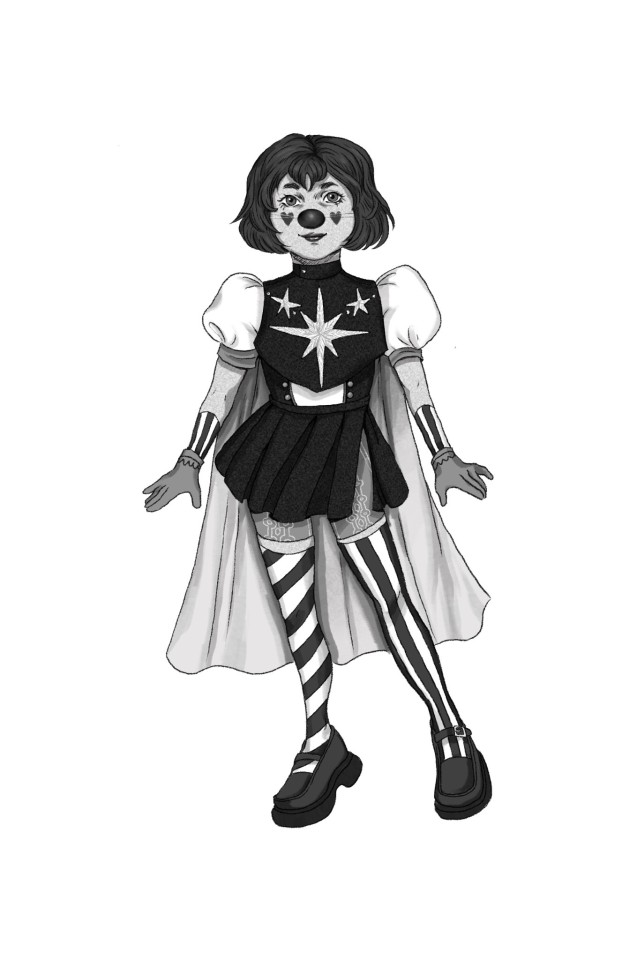

46 notes
·
View notes
Text


some full-body practice!! this ones for my fellow elf girl enjoyers
587 notes
·
View notes
Text

being asked to leave a physical real life area and calling it a soft ban is pretty good
58K notes
·
View notes
Text
how to keep following people when a major social platform implodes
(...and you don't want to join 20 new websites)
First, get an RSS reader*:
Desktop: Feedbro (browser extension), QuiteRSS, Raven Reader
Android: Feeder
iOS/Mac: NetNewsWire
You'll be able to make a custom feed to follow blogs, webcomics, social media feeds, podcasts, news, and other stuff on the web all in one place. To follow something, find its "feed URL"-- often marked by an icon that looks like this ↓-- and paste it into your reader of choice as a new feed.

Some feed URLs for social media:
Twitter: Feedbro can use Twitter profile URLs as feed URLs. Otherwise, use nitter.net/username/rss (or other Nitter instance) (You can get a CSV file of all the accounts you follow using "Download a user's friends list" on Tweetbeaver)
Tumblr: Use username.tumblr.com/rss or username.tumblr.com/tagged/my%20art/rss to follow a blog's "my art" tag (as an example)
Cohost: Use username.cohost.org/rss/public (WIP feature)
Mastodon: Use instance.url/@username.rss
Deviantart: Info here
Spacehey: Info here
Youtube: Go to a channel in a web browser, view page source, and use Ctrl-F/Command-F to find a link that starts with "https://www.youtube.com/feeds/videos.xml?channel_id="
Instagram: Feedbro can use Instagram profile and hashtag URLs as feed URLs. Otherwise, Instagram doesn't have RSS feeds, and due to aggressive rate limiting on their part, it's not so simple to generate a feed URL.
Facebook: Feedbro can use public Facebook group/page URLs as feed URLs.
(If you know an artist who exclusively posts to Instagram, you may want to gently suggest that they crosspost elsewhere...)
Also see how to find the RSS feed URL for almost any site. Try using public RSS-Bridge instances or Happyou Final Scraper to generate feeds for sites that don't have them (Pillowfort, Patreon, etc).
*You can set up your subscriptions in one reader and import them into another by exporting an OPML file.
36K notes
·
View notes
Photo

Customer: YOU FOOL
DMV: CONFRONTATIONAL
Verdict: DENIED
8K notes
·
View notes
Text
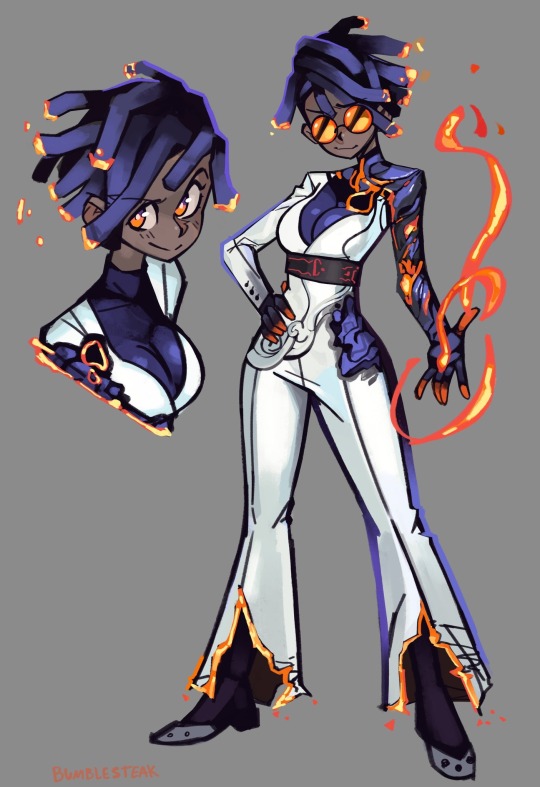

Adara’s a pyromancer who burns most of her outfits
3K notes
·
View notes
Text
A.N.I.M. TTRPG Book Club Showcase #2: Mothership
As some of you may know—and if you don’t, here is a post about it—A.N.I.M. runs a TTRPG book club where the whole club votes on, read, and play indie and indie-ish TTRPGs, then discuss them like a book club, with the ultimate goal of exposing people to new games and supporting smaller TTRPG developers. After each game, we do a “showcase” where quotes are compiled and posted for posterity along with a link to the game’s store page or wherever else you’re supposed to get it. Here is what the book club had to say about the second RPG to win a vote: Mothership by Tuesday Knight Games! Mothership was a game I had been looking forward to playing for a long time and I'm very glad to have gotten to play a one-shot with it. Mothership is for-sure an "OSR" game--relatively short rulebook, just enough rules and mechanics to get you by for exactly the genre it is supposed to emulate, fast and easy character creation, and a high chance for careless player-characters to die badly. If you like the Aliens franchise, you'll love Mothership.
Here is what the TTRPG Book Club generally had to say about Mothership by Tuesday Knight Games:

You can pick up a copy of Mothership here.
And hey, if you're a creator who wants to get their game out there in front of people, join our book club and nominate it!
Playing Mothership here led directly to 9 sales!
If you’re an independant TTRPG developer, come hop in, you can nominate your own game, and having a creator in the discussion is always a plus! Reminder, you can join the discord server from the invite link on our website or right here.
Just a reminder also that A.N.I.M.'s own first big project, Eureka: Investigative Urban Fantasy is launching on Kickstarter in April 2024!
Here is a preview of the Kickstarter page!
If you would like to pick up a prerelease copy of Eureka: Investigative Urban Fantasy along with three adventure modules, two short stories, and a novella, head over to our Patreon page!
If you want to try it before you decide to spend any money, head to our website to download the free demo of Eureka: Investigative Urban Fantasy!

60 notes
·
View notes
Note
You do of course understand that the reason most people prefer DND 5E is that it's one of the easiest systems to learn? Like I'm sorry it's all well and good to 'break up the cultural monopoly' but I have Dyscalculia and DND is seemingly the only tabletop system that doesn't consistently ask me to do a hefty amount of complex math. I've never given WOTC a penny but the reason I've primarily played 5E over basically everything else is it's the only system that was extremely easy to learn and completely self explanatory. (Also - I like elves and magic and shit.) You roll one dice to see if you can do a thing, you add whatever your plus or minus is, and then roll damage where appropriate. Easy. Meanwhile seemingly everything else is like "Okay so you roll two dice except sometimes it's four and then you take this stat and you divide it by that dice roll and then you add a number equivalent to the day of the week unless it's a leap year then you times that by three and if you get a prime number you can lift that coffee cup." Like have you ever heard of Villains and Vigilantes, for instance? It's fucking insane.Like I'm not saying I don't get why you wanna make this point? But I feel like I have to point out that most people who make indie TTRPG's don't seem to focus on accessibility when designing their systems and they are EXTREMELY intimidating for new players. And often, what people who are big into TTRPG's do is assume that because THEY fully understand this system and how it works, new players will too just as easily. The amount of times I've spoken to a GM, said "This sounds a bit complicated", and they've gone "No no no it's easy" and then described the most complicated set of rules I've ever heard is ridiculous.
Okay it sounds you’ve had a very narrow range of experiences with RPGs then because D&D 5e is on the higher end of complexity when it comes to RPGs and most indie RPGs are actually a lot less complex than D&D 5e. Like, Villains & Vigilantes is not the median when it comes to RPG complexity. There are systems even lighter than D&D out there. :)
647 notes
·
View notes
Text
"a mysterious pantsless man with a checkered dating history"
34 notes
·
View notes
Text
I think a lot of folks in indie RPG spaces misunderstand what's going on when people who've only ever played Dungeons & Dragons claim that indie RPGs are categorically "too complicated". Yes, it's sometimes the case that they're making the unjustified assumption that all games are as complicated as Dungeons & Dragons and shying away from the possibility of having to brave a steep learning cure a second time, but that's not the whole picture.
A big part of it is that there's a substantial chunk of the D&D fandom – not a majority by any means, but certainly a very significant minority – who are into D&D because they like its vibes or they enjoy its default setting or whatever, but they have no interest in actually playing the kind of game that D&D is... so they don't.
Oh, they'll show up at your table, and if you're very lucky they might even provide their own character sheet (though whether it adheres to the character creation guidelines is anyone's guess!), but their actual engagement with the process of play consists of dicking around until the GM tells them to roll some dice, then reporting what number they rolled and letting the GM figure out what that means.
Basically, they're putting the GM in the position of acting as their personal assistant, onto whom they can offload any parts of the process of play that they're not interested in – and for some players, that's essentially everything except the physical act of rolling the dice, made possible by the fact most of D&D's mechanics are either GM-facing or amenable to being treated as such.*
Now, let's take this player and present them with a game whose design is informed by a culture of play where mechanics are strongly player facing, often to the extent that the GM doesn't need to familiarise themselves with the players' character sheets and never rolls any dice, and... well, you can see where the wires get crossed, right?
And the worst part is that it's not these players' fault – not really. Heck, it's not even a problem with D&D as a system. The problem is D&D's marketing-decreed position as a universal entry-level game means that neither the text nor the culture of play are ever allowed to admit that it might be a bad fit for any player, so total disengagement from the processes of play has to be framed as a personal preference and not a sign of basic incompatibility between the kind of game a player wants to be playing and the kind of game they're actually playing.
(Of course, from the GM's perspective, having even one player who expects you to do all the work represents a huge increase to the GM's workload, let alone a whole group full of them – but we can't admit that, either, so we're left with a culture of play whose received wisdom holds that it's just normal for GMs to be constantly riding the ragged edge of creative burnout. Fun!)
* Which, to be clear, is not a flaw in itself; a rules-heavy game ideally needs a mechanism for introducing its processes of play gradually.
5K notes
·
View notes
Text
Have you played FUSION ?
By Palle Schmidt & Malik Hyltoft

Set in an alternative reality in the future year of 2012 (as imagined by someone in the nineties.) Fusion lets you play as hard boiled detectives in smalltown Denmark.
22 notes
·
View notes
Note
Any recommendations for longer-than-one-shot games that feature player characters managing a tension between two (or more) of their characteristics?
I love a Lasers & Feelings hack, but they're definitely not geared for campaigns!
THEME: Character Tension!!!
Hello friend! I couldn’t think of many games that used the same kind of tension present in Lasers and Feelings, but Honey Heist hits a lot of the same key notes I think - that of pulling your characters closer and closer to one end or the other. So I looked for games that give you tools to alter your chances of success - at the cost of pulling you towards one sort of ending or another. These endings shouldn’t be something you can hit in only one game, but is likely to happen over the course of a short campaign.

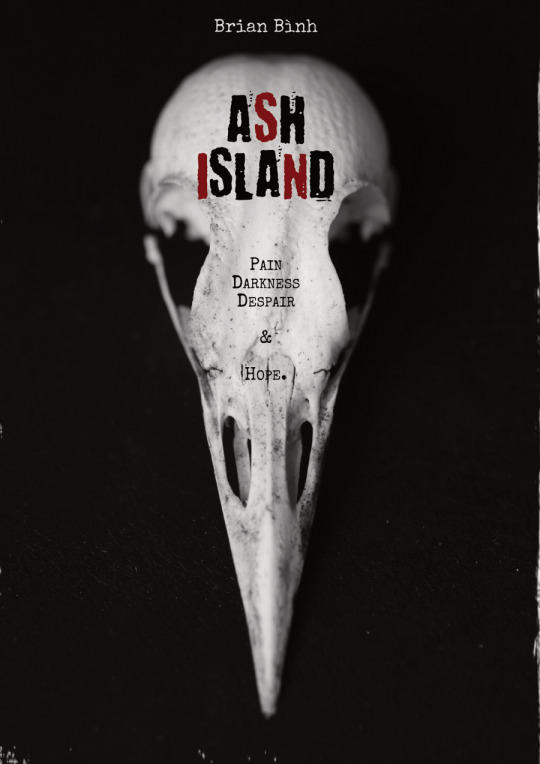

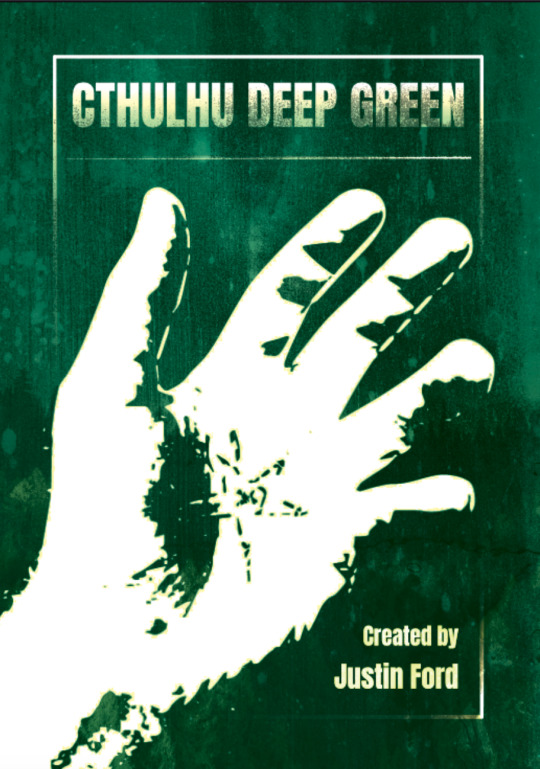
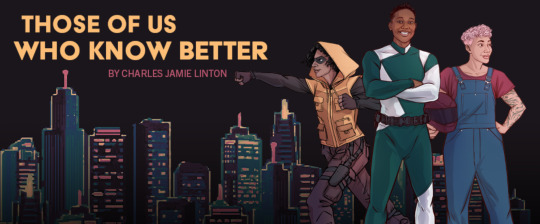
Ares Ascendant, by Dan Brown.
Colonizing Mars is more than an exercise of grit and technology and science. It’s politics and economics, too. It’s forming a new social, political, and economic framework in which humanity can thrive, all within a hostile environment.
Human achievement won’t be marked by getting to Mars. It will be marked by humanity’s ability to stay there.
In Ares Ascendant, players assume the roles of Earth’s best and brightest, the group who will establish the first Martian colony. They won’t start entirely from scratch, as their transport ship is loaded with supplies, and unmanned vessels have been dropping equipment over the last several years. Despite the head start, however, the group will be responsible for getting things ready for more colonists.
Ares Ascendant uses the PARAGON system, replacing the Glory/Pathos meters with a Renown/Fatigue dichotomy instead. Your characters are trying to develop the first Martian colony, which is both a high-profile and a taxing job. When you do the best out of your companions on an action, you gain Renown, which basically acts as a measure of how many people will remember what you contributed to the mission.
If you want to increase your chances of success on any given roll, you can spend a point of Fatigue to push yourself and add an extra dice from one of your character’s Domains. If you fill up your Fatigue track, you mark a point of Reputation. When you fill your Reputation track, your story is over, and your Renown will determine how well-known you are. All in all, how hard will you push yourself, and will you lose your chance at making history if you try too hard to succeed on your own?
Ash Island, by Brian Binh.
Ash Island is a roleplaying game of pain, darkness, despair, and hope for a GM and one or more players, set in a fog-shrouded New England town on a small island dominated by an evil force that manifests the characters' own inner demons to torment them.
You take the role of anchorites, unfortunate souls bound to the dark spirit of the island by the unique suffering of their own personal sins or trauma. You answered the island's siren call and find yourself trapped in a ghost town full of dangerous monsters. Unarmed and alone, you must use your talents to explore, arm yourself, and find a way to escape. Of course, you can't just run away. There's something else you have to do first…
Ash Island is built on the Ruled by Night SRD, which uses two pools of resources called Shadow and Flame. I’m not entirely sure if these pools retain the same name in this hack, but the way they work should stay the same. You can accumulate Shadow through successfully stealthing from one point to another, while you accumulate Flame when you must resort to (loud and flashy) violence. A higher Flame pool requires you to spend more Shadow in order to have a success, and you can only reduce your Flame after you’ve taken care of another penalty called Suspicion. These two pools should pull your characters between a way out that is difficult but keeps you safe, or a way out that is easy but draws more and more danger your way.
Part-Time Gods, by Third Eye Games.
The gods of today are shadows of what the old gods possessed. Their power has been heavily diminished, and many choose to live a regular, mortal life, revealing themselves as gods only when absolutely necessary. They have a mortal life, a job (or career if they’re lucky), friends, family, and everything that comes with being human, and they work hard to protect these things from harm. On the other side of the coin, they also have a Dominion to command and oversee, a deific Territory to defend from intruders, secret societies to which they owe allegiances (called Theologies), and other gods in their pantheon to try to get along with. This becomes their life, the balancing of the mortal and the divine, the normal and the supernatural, the mundane and the strange.
Part-Time Gods Second Edition (PTG2E) is the latest iteration of an amazing setting about gods and the people, groups, and places in their lives that keep them tied to their humanity.
In Part-Time Gods, your character has to balance how much of their time they spend on their godly duties, and how much of their time they spend on their mundane jobs and relationships. When you create your character, you’ll take options that give you either more free time or more money, and both of these resources are needed to help manage your responsibilities. This game does a really good job of exemplifying the balancing act of your characters’ lives in it’s rules - although it also requires a bit of bookkeeping in order to keep track of all of your responsibilities. Out of all of the games listed here, I think PTG is the most suited for a very long campaign.
Cthulhu Deep Green, by Dissonance.
Building upon the groundwork set out in Cthulhu Dark by Graham Walmsley, Cthulhu Deep Green contains a modified rules set for playing as Agents of The Conspiracy: a shadowy government agency tasked with concealing evidence of the supernatural.
Cthulu Deep Green has a fairly simplistic ruleset, with one character resource called Stress that you will mark every time you roll. In CDG, you will often find yourself rolling with something called a Dark Dice, which will add to your Stress level if it is the highest-rolled result out of your entire pool. Adding a Dark Dice might be required if you want a chance to success, or to re-try for something better, but take too much and you’ll burn out. I’m not entirely sure how fast the Stress accumulation happens in this game - I think if your play group is roleplay heavy, you might be able to play this game over quite a few sessions before your characters get completely burned out.
Those of Us Who Know Better, by C.J.Linton.
Those of Us Who Know Better is a tabletop roleplaying game about transgender superheroes whose powers come at a price. Civilians by day, in community every other Thursday evening, and heroes by night, the players use their powers to problem solve and offer protection and support around town. These powers must be used sparingly, however, because every use of a superpower demands a specific and costly remuneration.
The tension that exists in this game lies in the consequences of using your powers. When you create your superhero, you choose a superpower and a consequence. You can use the superpower, but immediately after you must do something else, as well as take a (temporary) hit to one of your stat modifiers. As a result, your stats will increase and decrease as you play.
Games I've Talked About Before
Apocalypse Keys is all about fighting the Harbinger inside you; you have the potential to both save the world and end it - will your companions save you from your doom, or drag you closer to it?
The Empire Undying uses the same number-between-two-stats as Lasers and Feelings, but I think it's designed for a longer run-time than just a one-shot, and not just because you're using a larger number range (2-9 instead of 2-5).
35 notes
·
View notes


